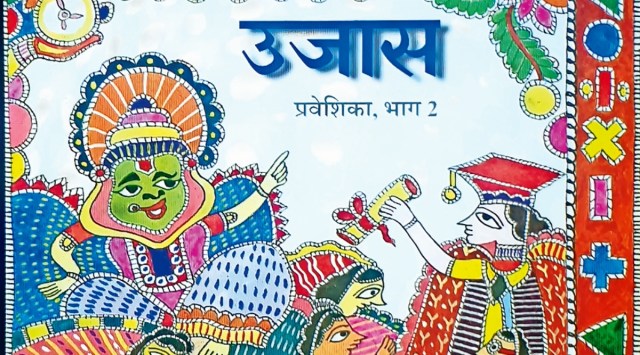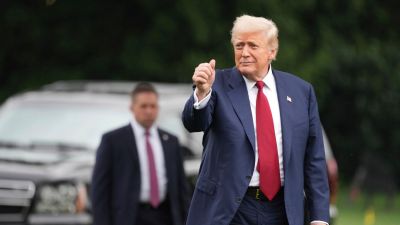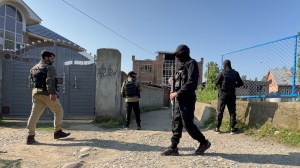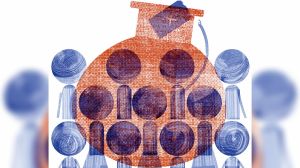Click here to join Express Pune WhatsApp channel and get a curated list of our stories
New India Literacy Programme sets target of educating over 12 lakh illiterate people by 2024
"Between 2022 and 2024, Maharashtra has set a target of making 12,40,000 people between the ages of 15 and 35 literate," said Mahesh Palkar, director of education who is heading the State Literacy Mission Authority (SMLA).
 The course material prepared by Maharashtra SCERT is available online in Marathi and Hindi among other languages. Express
The course material prepared by Maharashtra SCERT is available online in Marathi and Hindi among other languages. Express As the activities of the Literacy Week draw to an end, the New India Literacy Programme (NILP), a centrally sponsored scheme aimed at eradicating illiteracy among those above 15 years of age, is in full swing in Maharashtra.
The course material prepared by Maharashtra State Council for Educational Research and Training (SCERT) is ready and available online in Marathi, English, Hindi among other languages on the DIKSHA portal. Two training programmes for teacher trainers–one in Pune and Nagpur each– spanning across three days began on Wednesday. Additionally, over 12,000 people who are illiterate and 917 volunteers have registered on the ULLAS online application, as of Tuesday evening.
“Between 2022 and 2024, Maharashtra has set a target of making 12,40,000 people between the ages of 15 and 35 literate,” said Mahesh Palkar, director of education who is heading the State Literacy Mission Authority (SMLA).
“According to the 2011 Census which we are relying on, there are over 1,63,00,000 illiterate people in Maharashtra. We hoping to get current data on the number of people who are illiterate through a survey that we started last month,” said Palkar.
This scheme is based on the Sustainable Development Goal 4 of the United Nations’ ‘ensure inclusive and equitable quality education and promote lifelong learning opportunities for all’ and aligns with the New Education Policy 2020.
“The definition of literacy has been widened and the educational material has been prepared accordingly,” said Neha Belsare, deputy director for social science, arts and sport, SCERT, and head of the State Center for Literacy (SCL). The SCL has been established at the SCERT to look at the academic and training-related aspects of the literacy program.
“Literacy is not just about reading, writing and numeracy anymore. It is about enhancing one’s entire quality of life by way of vocational skills, digital literacy, basic literacy of law and every day skills.. This curriculum has been developed with awareness and respect for life skills, abilities and experiences that people would have even if they are illiterate,” said Belsare.
As part of the training programme for teacher trainers, one DIET (District Institute for Education and Training) faculty and two subject experts from each district will be trained here. They will then go back and conduct further training in their own district at the block- level, Belsare said.
The implementation of this mammoth task is envisioned to be community-driven with ULLAS mobile application as the first point of contact between volunteers, nodal schools and illiterate people.
“Community participation is crucial for this, the government alone cannot do it all,” said Belsare. “Children of classes 8 and above, students of BEd and DEd colleges, unemployed, homemakers who are free, retired people who want to contribute to the society, can enroll as volunteers on the ULLAS mobile app.”
Volunteers can take the responsibility of teaching ideally 10 illiterate people, who are also registered on the app. Local schools will be the unit to identify illiterate people and map volunteers. Teachers can be approached for any guidance, mediation or training.
“We have developed four primers with 13 themes such as digital literacy, financial literacy, voting and election literacy, food and nutrition, legal literacy and so on,” said Ratna Mala Khadke, principal of DIET Akola, who was involved in the development of the curriculum. “There are teaching guidebooks, question banks as well as evaluation guides that have been created.”
The National Curriculum Framework for Education For All (NCF EFA), which was earlier called NCF for Adult Education, is expected to be out soon this year and will lay down further concrete guidelines on the material.
Click here to join Express Pune WhatsApp channel and get a curated list of our stories












